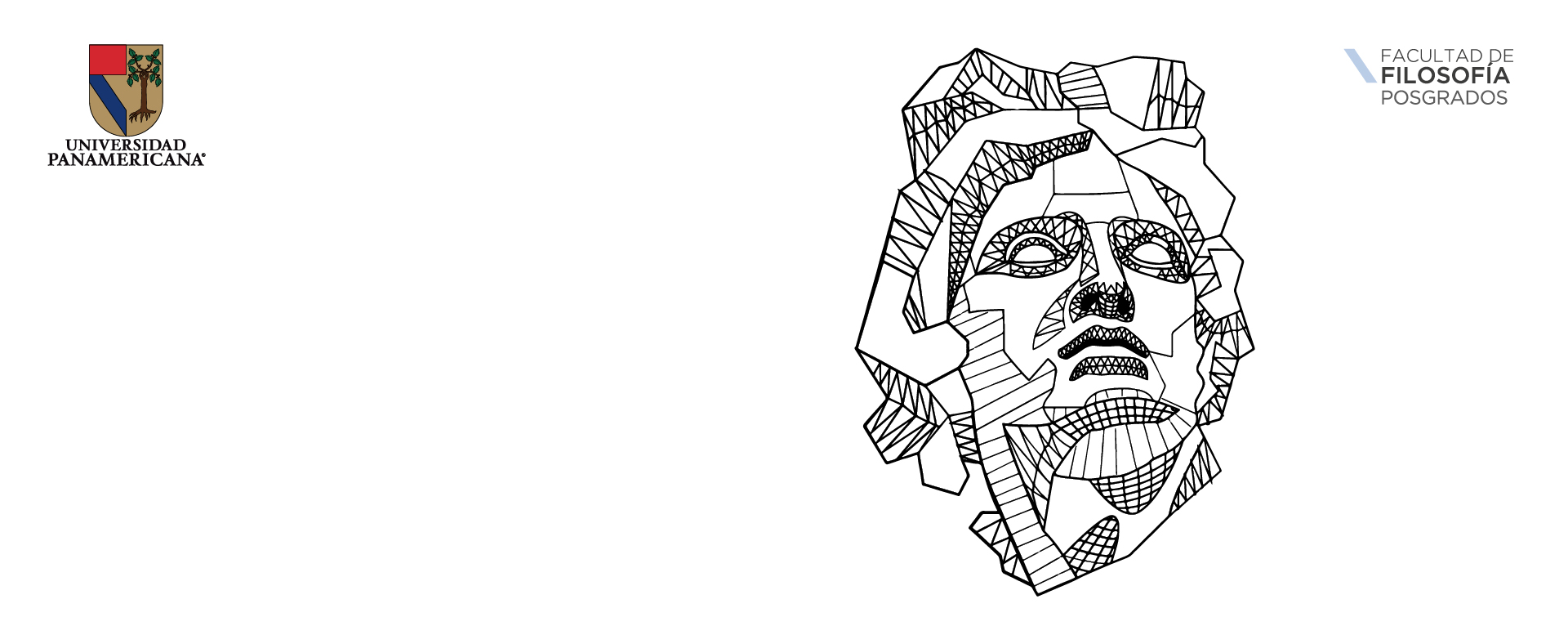


About the
Master
The Master in Ancient Philosophy has collaboration agreements with the following national and foreign higher education institutions:
 Graduate director
Graduate director
Mauricio Lecón
mlecon@up.edu.mx
Tel: + 5482 1600. Ext. 5325
 Graduate assistant
Graduate assistant
Valeria Tapia
vtapia@up.edu.mx
Tel: + 5482 1600. Ext. 6552
“Cuerpos e incorpóreos, existentes y subsistentes en el estoicismo. Problemas de ontología y semántica estoicas”, Marcelo Boeri (Pontificia Universidad Católica de Chile)
“Virtudes. Una lectura libre de la Ética Nicomaquea”, Héctor Zagal (UP, México)
“Dios y lo divino en la filosofía antigua: Platón, Aristóteles y el neoplatonismo”, Alberto Ross (UP, México)
“El libro sexto de la República de Cicerón: el Somnium Scipionis y la interpretación neoplatónica de Macrobio”, José Luis Quezada (UNAM).
"Historia, recepción, memoria: ¿Qué dicen los textos antiguos y cómo manejarlos?", André Laks (UP, México)
“Seminario de traducción de textos políticos griegos”, David Lévystone (UP, México)
“La felicidad invencible: una introducción a la ética estoica”, Leonardo Ramos (UNAM)
“Comentarios e interpretaciones a De anima 3.4-5: Alejandro de Afrodisia y al-Farabi”, Luis Xavier López Farjeat (UP, México), Michael Chase (CNRS Centre Jean Pépin – École Normale Supérieure)
“Parménides y la historia de la ontología", André Laks (UP, México)
“Seminario de traducción de Categorías IV”, Ma. Elena García Peláez (UP, México), David Lévystone (UP, México)
“On Aristotle’s Poetics”, Pierre Destrée (UCLouvain )
“Pierre Hadot and his Conception of Philosophy as a Way of Life (PWL): From Ancient texts to Contemporary Repercussions”, Michael Chase (CNRS Centre Jean Pépin – École Normale Supérieure)
“Manuscripts of Aristotle, NE VII”, Douglas Hutchinson (University of Toronto)
“Seminario de traducción de Categorías III”, David Lévystone (UP, México)
“La recepción de Aristóteles en la Nueva España (siglos XVI-XVIII)”, Virginia Aspe (UP, México)
“The idea of Immortality in Antiquity”, Maria Liatsi (University of Ioannina)
“Cuestiones de historiografía filosófica en Aristóteles, Metafísica A”, Leopoldo Irribarren (EHESS-École des hautes études en sciences sociales, Centre ANHIMA)
“Seminario de traducción de Categorías II”, David Lévystone (UP, México)
“Los principios superiores en la filosofía de Plotino”, José Molina (IIF, UNAM)
“Comentarios árabes y latinos al De anima de Aristóteles”, Luis Xavier López Farjeat (UP, México), Therese Cory (University of Notre Dame)
“Seminario sobre el libro II de la Física de Aristóteles", José María Llovet (UP, México)
“La teoria aristotelica delle emozioni nella Poetica e nella Retorica di Aristotele”, Cristina Viano
“La teoría de la felicidad en la Ética y en la Política de Aristóteles”, Carlo Natali (Universita' Ca Foscari di Venezia)
“Seminario de traducción de Categorías I”, David Lévystone (UP, México)
“La stoa y los maestros parisinos del siglo XIII. Los escritos ciceronianos como fuente”, Laura Corso de Estrada (Universidad Católica de Argentina)
“El curso de la historia: ideas de primitivismo, progreso y decadencia en el pensamiento griego antiguo”, Leopoldo Iribarren (EHESS-École des hautes études en sciences sociales, Centre ANHIMA)
“Medicina y Filosofía en la Antigüedad”, Ma. Elena García Peláez (UP, México)
“Normative Naturalism in Aristotle's Political Philosophy”, Christoph Horn (Rheinische Friedrich-Wilhelms-Universität Bonn)
“Seminario de traducción de Metafísica L”, Ma. Elena García Peláez (UP, México), David Lévystone (UP, México)
“Recepción de la filosofía antigua en la filosofía árabe y judía”, Luis Xavier López Farjeat (UP, México), Daniel Fainstein (Universidad Hebraica de México).
“Tradiciones antiguas en la discusión medieval sobre el alma”, Jörg A. Tellkamp (UAM, Iztapalapa)
“Virtue of courage from Homer to Aristotle”, David Lévystone (UP, México)
“Readings of Aristotle’s Nichomachean Ethics”, Eduardo Charpenel Elorduy (UP, México)
“On Plato's Symposyum”, Nicole Ooms (UNAM- CEPHICS)
“The Relationship Between Aristotle’s Eudemian Ethics and the Nicomachean Ethics”, Hendrik Lorenz (Princeton University)
“Método y ciencia en Aristóteles”, Héctor Zagal (UP, México)
“Dios, eternidad y movimiento en Aristóteles”, Alberto Ross (UP, México)
“Early Greek Political Philosophy: Sophists & Socratics”, David Lévystone (UP, México)
“Problemas de psicología platónica y aristotélica: ¿puede haber algo ‘común a cuerpo y alma’ en un modelo psicológico dualista?”, Marcelo Boeri (Universidad Católica de Chile)
“Short Introduction to Aristotle’s Metaphysics”, Silvia Fazzo (Università del Piemonte Orientale)
“Recepción árabe de los tratados lógicos de Aristóteles”, Luis Xavier López Farjeat (UP, México)
“Biología de Aristóteles”, María Elena García Peláez (UP, México)
“Los filósofos helenísticos como herederos de Sócrates”, Nicole Ooms (UNAM- CEPHICS)
“Autoconocimiento en Platón y Plotino. La proyección de un motivo socrático en la noética del platonismo”, Alejandro Vigo (UNAV)
“From Plato to Platonism. A Short Course on Plato and his Interpreters”, Lloyd Gerson (University of Toronto)